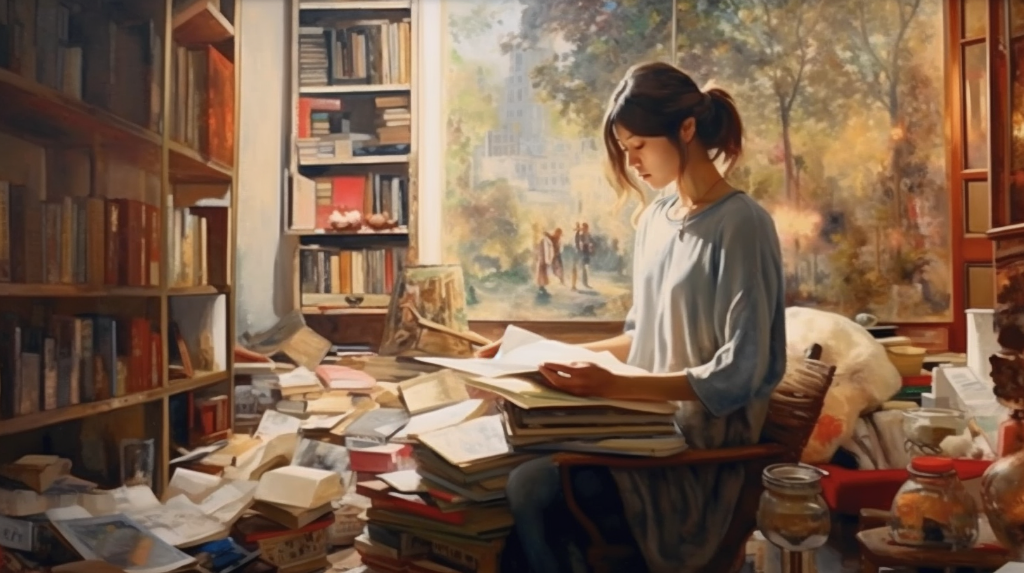The Path to Becoming a Successful Freelance Artist

Have you ever dreamed of turning your artistic passion into a career? The world of freelance artistry might be the perfect fit. In this blog post, we will explore the key attributes, skills and experiences necessary to thrive as a successful freelance artist. The journey to becoming a self-sustaining artist is filled with both challenges and rewards, but with the right mindset and tools, it is an attainable goal.

Understanding the Freelance Artist Landscape
Before embarking on the journey to becoming a freelance artist, it is important to understand the landscape of the industry. Currently, the market for freelance artists is dynamic and ever-evolving. With the rise of digital platforms, artists now have more opportunities to showcase their work and connect with potential clients globally. However, with increased opportunities come increased competition. Therefore, standing out in this crowded marketplace requires not only talent but also a deep understanding of market trends and the ability to seize emerging opportunities.
Necessary Traits of a Freelance Artist
What does it take to be a successful freelance artist? Beyond artistic talent, certain personality traits are critical. First and foremost, creativity is the cornerstone of any artistic endeavor. The ability to see the world in unique ways and translate those perspectives into art is what sets artists apart.
However, creativity alone is not enough. As a freelancer, you must also be self-motivated. Unlike traditional jobs with supervisors and set schedules, freelance artists must manage their own time and projects. This requires a high level of self-discipline and motivation.
Additionally, resilience is crucial. Rejection and criticism are part and parcel of an artist’s life. The ability to bounce back from setbacks and persist in the face of adversity is vital for long-term success.
Finally, adaptability is key. The art world is always changing, and artists must be willing to learn new techniques, explore different styles, and adapt to shifts in the market.
Essential Skills for a Freelance Artist
Have you ever wondered what kind of skills are crucial for a freelance artist to possess? There’s more to it than just the ability to create beautiful works of art. Let’s delve into this important aspect.
Artistic Skills
Needless to say, artistic skills are at the core of any freelance artist’s career. Whether one specializes in drawing, painting, sculpture, digital art, or other forms of artistic expression, it is essential to have a solid foundation in these skills. Mastery in one’s chosen medium allows an artist to bring their unique vision to life, capturing the attention and imagination of viewers. Additionally, versatility in different art forms can be extremely beneficial, opening up a wider range of opportunities.
Continuous practice and exploration of various techniques and styles is key to honing one’s artistic skills. So, what’s your favorite form of art? How often do you practice it?
Business Skills
However, artistic talent alone is not enough to ensure success in the freelance world. Business skills are equally important. As a freelance artist, you are essentially running your own small business. This means you need to be adept at marketing your work, networking with potential clients and peers, negotiating contracts, and managing finances.
Understanding your target market, creating a compelling artist statement, and showcasing your work effectively are all part of marketing. Equally important is the ability to negotiate fair contracts that value your work and time. And of course, managing your income, expenses, and taxes is critical to maintaining a sustainable freelance career. So, are you ready to wear the hat of a businessperson along with that of an artist?
Communication and Interpersonal Skills
Effective communication and good interpersonal skills can often be the difference between a one-time project and a long-term professional relationship. As a freelance artist, you will need to communicate with a wide range of people, including clients, gallery owners, other artists, and the public. Being able to clearly express your ideas and understand the needs of your clients is crucial.
Remember, people are more likely to recommend and work with professionals who are pleasant, respectful, and cooperative. So, how would you rate your communication and interpersonal skills?
Building a Strong Portfolio
One of the best ways to showcase your versatility, creativity, and skill as an artist is through a strong portfolio. This is essentially your visual resume, providing potential clients with a snapshot of your work.
Your portfolio should include a selection of your best works, demonstrating a range of styles and mediums if possible. Each piece should be accompanied by a brief description, explaining the concept, techniques used, and any other relevant details. A well-organized, visually appealing portfolio can be a powerful tool in attracting new clients and opportunities. So, is your portfolio reflecting the best of your artistic abilities?
Building Your Brand as a Freelance Artist
Have you ever wondered how some artists become so recognizable? It’s all about branding. In the world of freelance artistry, creating a unique style and defining your value proposition are paramount. They enable you to stand out in the crowded art market.
Your unique style is akin to your creative signature. It’s what identifies your work and sets it apart. Find your voice, your niche, and let your art reflect it. This, coupled with a well-defined value proposition, can elevate your brand in the eyes of potential clients.
Promoting your work is just as crucial. In the digital age, platforms such as Instagram, Pinterest, and Etsy can be your best friends. They allow you to showcase your work to a global audience, increasing your visibility and potential for sales. Remember, the more you put your work out there, the more opportunities you create for yourself.
Networking and Building Relationships
Working as a freelance artist often means working alone. However, this does not mean you should isolate yourself. Networking is key in the art world. It can lead to collaborations, commissions, and even mentorships. But where do you start?
Art events, exhibitions, and workshops are excellent places to begin. They provide opportunities to meet other artists, potential clients, and industry insiders. Making genuine connections and maintaining these relationships can contribute significantly to your career growth.
Setting up Your Freelance Business
Transitioning from an artist to a freelance artist means you’re not just creating art; you’re running a business. This involves understanding legalities, setting your rates, and managing invoices.
Understanding the legal aspects of your business is crucial. This could involve copyright laws, contract agreements, and tax obligations. It may seem daunting, but there are numerous resources available to help you navigate this terrain.
Setting your rates can be a tricky process. You need to consider the time taken, the cost of materials, and the value of your skill and experience. It’s also important to research market rates to ensure you’re not undervaluing or overpricing your work.
Finally, managing invoices and payments is a vital part of your business. There are various invoicing software options available that can simplify this process for you.
Key Steps to Becoming a Successful Freelance Artist
| Step | Description |
|---|---|
| 1 | Develop Artistic Skills |
| 2 | Build a Strong Portfolio |
| 3 | Create Your Brand |
| 4 | Network and Build Relationships |
| 5 | Set Up Your Freelance Business |
| 6 | Overcome Challenges and Adapt |
| 7 | Continue Professional Development |
| 8 | Sustain Success |

Overcoming Challenges in the Freelance World
As rewarding as it can be, the freelance artist’s journey is not without its challenges. Understanding these challenges and finding effective ways to overcome them is crucial for long-term success. So, what are some common hurdles you might face, and how can you navigate them?
One common challenge is inconsistent income. This can be addressed by diversifying your income streams. For example, you could sell prints of your work, teach art classes, or take on commercial projects alongside your personal work. It’s all about finding a balance that works for you.
Another common challenge is isolation. Freelance artists often work alone, which can sometimes lead to feelings of loneliness. To combat this, consider joining an online community of artists, or participating in local art events. These interactions can provide valuable support and inspiration.
Continuing Professional Development
As a freelance artist, your learning journey never really ends. Staying updated with the latest trends and techniques in the art world is essential for maintaining your relevance and enhancing your skills. But how can you ensure continuous professional development?
One effective strategy is to regularly attend webinars, workshops, and courses. This not only helps you learn new skills but also provides opportunities for networking. Additionally, reading art-related books and blogs can help you stay informed about the latest trends.
Strategies for Sustaining Success
Now that you’ve established yourself as a freelance artist, how do you ensure this success is sustained over time? Let’s explore some key strategies.
Firstly, maintaining a consistent work schedule can help you manage your projects efficiently and meet deadlines. Secondly, continual networking is important for finding new opportunities and building relationships in the art community. Lastly, don’t forget to take care of your mental and physical health. After all, your creativity flourishes when you’re in good health.
- Maintain a consistent work schedule
- Continue networking and building relationships
- Take care of your mental and physical health
- Diversify your income avenues
- Stay updated with the latest trends and techniques
- Join an online community of artists
Final Thoughts
The journey of a freelance artist is one of continuous growth and creativity. It requires resilience, adaptability, and a constant hunger for learning. Remember, every challenge you encounter is an opportunity for growth. With the right mindset and strategies, you can navigate the freelance landscape successfully and make your mark in the world of art.
Get Organized & Win More Clients
Kosmo has everything you need to run your freelancing business.